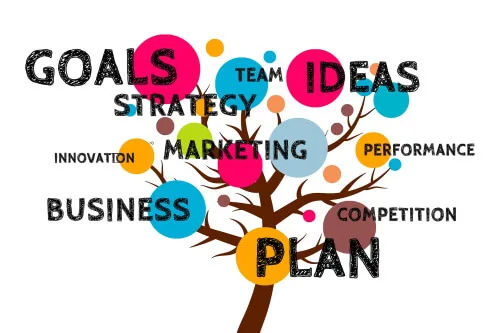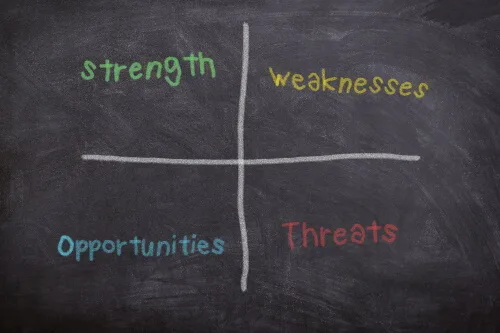What Are the 3 Types of Goals in Goal Setting? Let’s Explore Outcome, Performance, and Process Goals
Table of Contents

Hi, Ian here — glad to have you here! Ever feel like you’re running in circles but not getting anywhere? You’re not alone. One reason people spin their wheels is they don’t have clear, motivating goals.
But we’re not just talking about random goals — we’re talking about the right goals. The kind that make you excited to leap out of bed, high-five your future self, and get things done.
So buckle up! In this article, we’ll break down the three key types of goals you need to know: outcome goals, performance goals, and process goals.
We’ll keep things fun with relatable examples, a few pop culture nods (Yoda, anyone?), and practical tips you can use right away. Forget boring checklists — we’ll show you how to find what truly fires you up.
Your goals could be small, like perfecting a recipe, or huge, like running a marathon — the magic is in setting goals that feel meaningful for you. We’ll cover the popular SMART framework (like the Spice Girls of goal setting) and even BHAGs (Big Hairy Audacious Goals — think of climbing Everest in a tutu). And of course, we’ll tackle obstacles, because roadblocks are just stepping stones in disguise.
Whether you’re new to goal setting or a seasoned goal-getter, you’re invited to this goal-setting party. Let’s do this — and make your next chapter your best yet!
Outcome Goals
Outcome goals are the final results you want to achieve — your big picture. Think: “I want to lose 8 pounds in 4 weeks” or “I want to run 4 miles in under 25 minutes.” These goals are powerful because they give you a clear destination. Instead of wandering aimlessly, you’re working toward something specific and measurable. To make outcome goals work, be clear about what you want.
Map out a plan, set milestones, and prepare for roadblocks. For example, create a realistic timeline and identify what might stand in your way. Outcome goals keep your eyes on the prize — and give you the motivation to show up every day.
Performance Goals
Performance goals are all about measurable progress on your way to that big outcome. Example: “I’ll lose 1 pound per week until I reach my total goal.” Athletes use performance goals all the time, but anyone can benefit. They push you to improve, track your progress, and celebrate wins along the way. When setting performance goals, keep these tips in mind: ✅ Make them specific and measurable — so you always know where you stand.
✅ Keep them realistic — setting goals too big can backfire. ✅ Give each goal a timeline — it adds urgency and keeps you on track. ✅ Celebrate milestones — every step forward is worth recognizing!
Process Goals
Process goals are the daily actions that drive your performance and outcome goals forward. Example: “To lose 1 pound per week, I’ll eat 600 fewer calories daily.” Process goals keep you focused on what you can control every day. In business or personal life, process goals help you work smarter, not harder.
For example, if your goal is to get promoted, your process goals might be to lead new projects and network weekly. The key? Break big tasks into bite-sized actions that build momentum. Small steps add up to big wins.
3 Types Of Goals in Business
Every business needs clear goals to thrive. These usually fall into three categories: short-term, medium-term, and long-term. If you’re just starting out, focus on short-term goals like breaking even and attracting customers. Medium-term goals could include growing into new markets or launching new products. Long-term goals might be becoming the market leader or reaching full sustainability.
Businesses also set outcome goals, customer goals, and employee performance targets. Each type has a unique role:
- Financial goals keep your finances healthy and sustainable.
- Customer goals help you deliver outstanding service and meet client needs.
- Employee performance goals keep your team motivated and moving forward.
3 Types Of Goals in Management
In management, setting goals keeps everyone aligned and focused. There are three main goal types here too: ✅ Financial goals: Profit, cash flow, ROI — all about your bottom line. ✅ Operational goals: Streamlining processes, reducing waste, boosting efficiency. ✅ Strategic goals: Big-picture growth like new products, markets, or expansion. Master these, and you’ll keep your organization moving in the right direction.
- Financial goals help you track profit and sustainability.
- Operational goals make your daily work smoother and more efficient.
- Strategic goals ensure long-term growth and innovation.
3 Types Of Goals for Students
Students can use goal setting to boost grades, stay organized, and reduce stress. Here are a few goals every student should consider: ✅ Improving grades — start with a big-picture target, then break it down into weekly study goals. ✅ Managing stress — break big tasks into smaller chunks and stay realistic. ✅ Organizing time better — use clear, measurable goals to stay on track. Good goals help you feel in control, motivated, and ready to tackle whatever comes your way.

Developing Better Study Habits
Good habits are the foundation of progress. Break your goals down into manageable steps, track your wins, and adjust as needed. Need help staying focused? Make a plan — even a simple daily checklist can work wonders. Stay realistic, and don’t forget to celebrate small victories along the way.
Make a Plan
Don’t just wing it — break your bigger goals into smaller daily or weekly tasks to stay on track. Planning ahead means less stress and better results. Try a simple planner or use tools to track your progress. Here’s a great resource for self-assessment and staying organized.
Making New Friends & Forming Study Groups
Want a better study experience? Set clear goals for making new connections. Try joining online groups, attending events, or listing qualities you’d like in study partners. The right support system can make a huge difference in staying motivated and accountable.
Boosting Self-Confidence & Self-Esteem
When you’re building confidence, clear goals help you grow. For example, instead of “I want to feel confident,” try “I’ll introduce myself to five new people at my next event.” Keep your goals specific and achievable. Small wins add up to big confidence over time. Check out these examples for more inspiration.
FAQS
How do I stay motivated to achieve my goals?
Staying motivated can be tough, but it helps to break big goals into smaller steps, celebrate small wins, and track your progress.
Surround yourself with supportive people and remind yourself regularly why the goal matters to you.
Final Words
So, what are the three main types of goals? They’re outcome goals, performance goals, and process goals. Performance goals help you hit specific milestones. Outcome goals define the big result you want. Process goals keep you on track day by day. Whether you’re a student, entrepreneur, or lifelong learner — mastering these goal types will help you move forward with confidence. Wishing you health, wealth, and happiness on your goal-getting journey!
